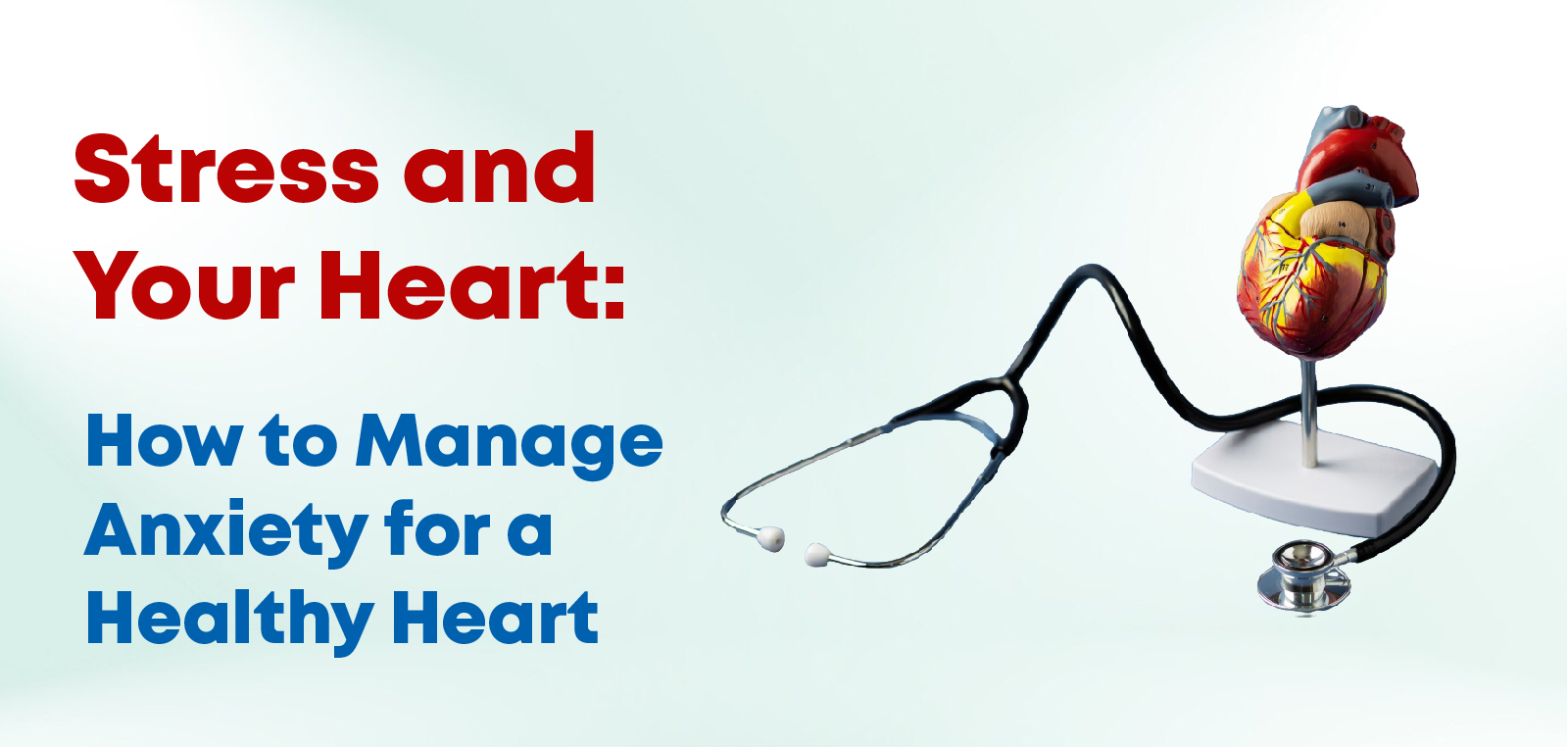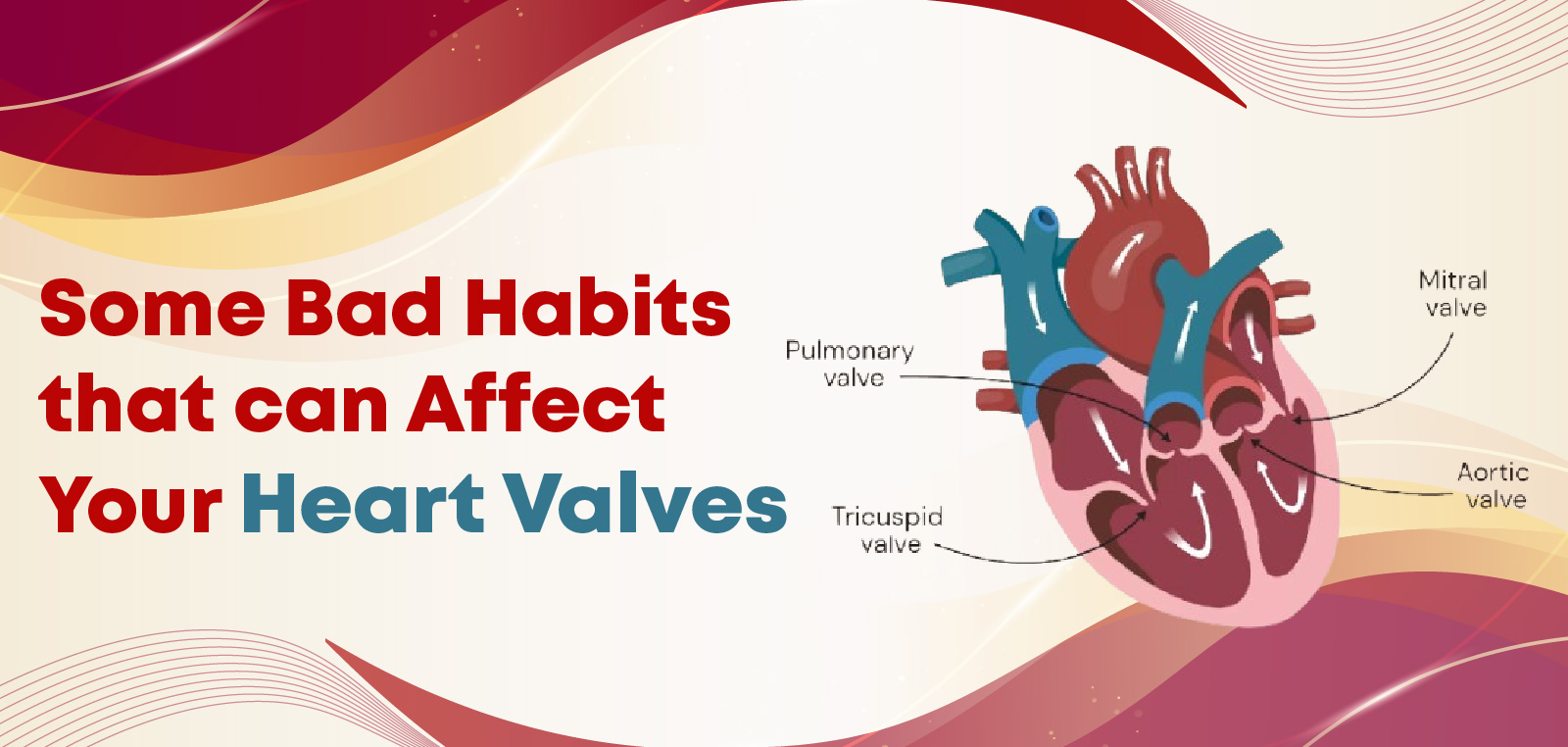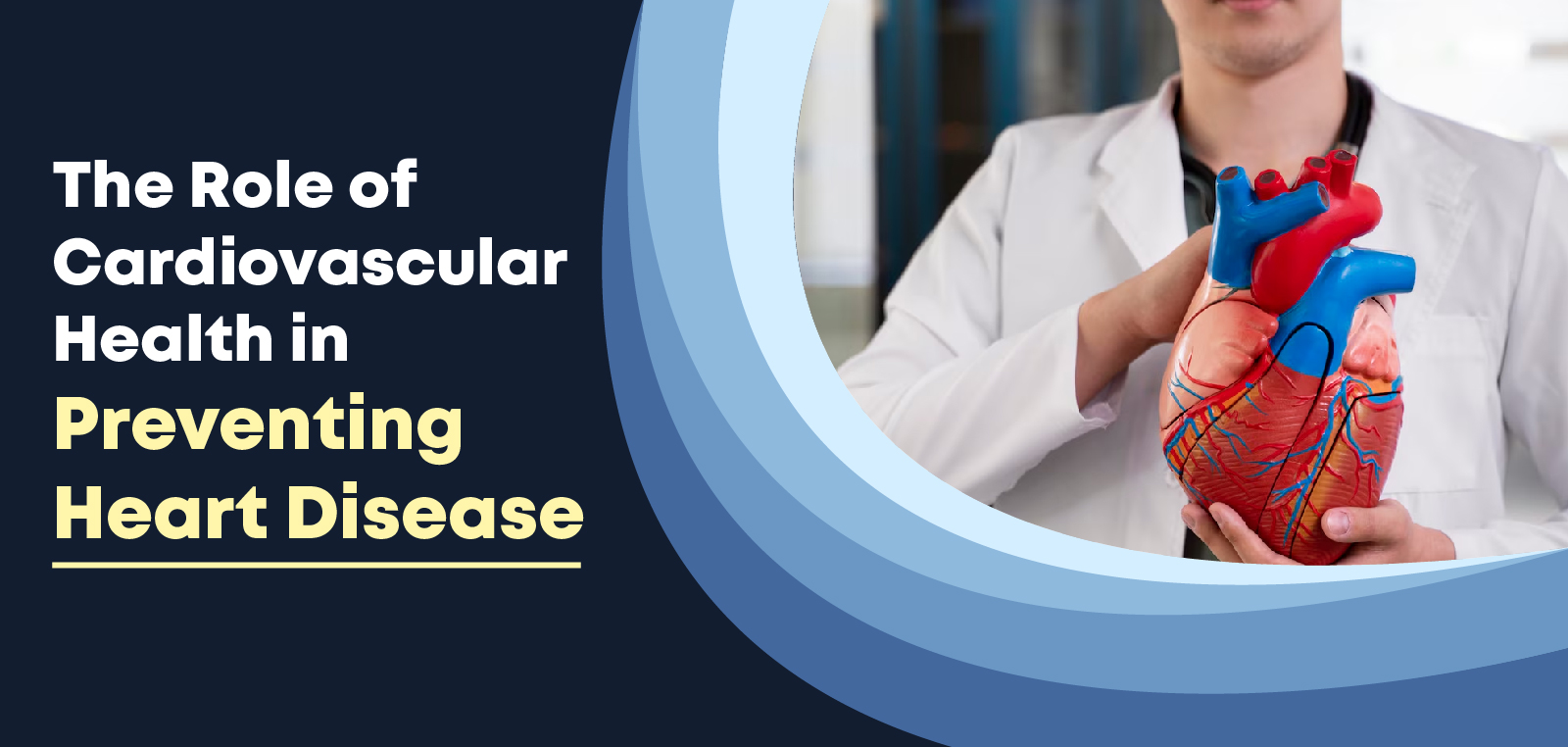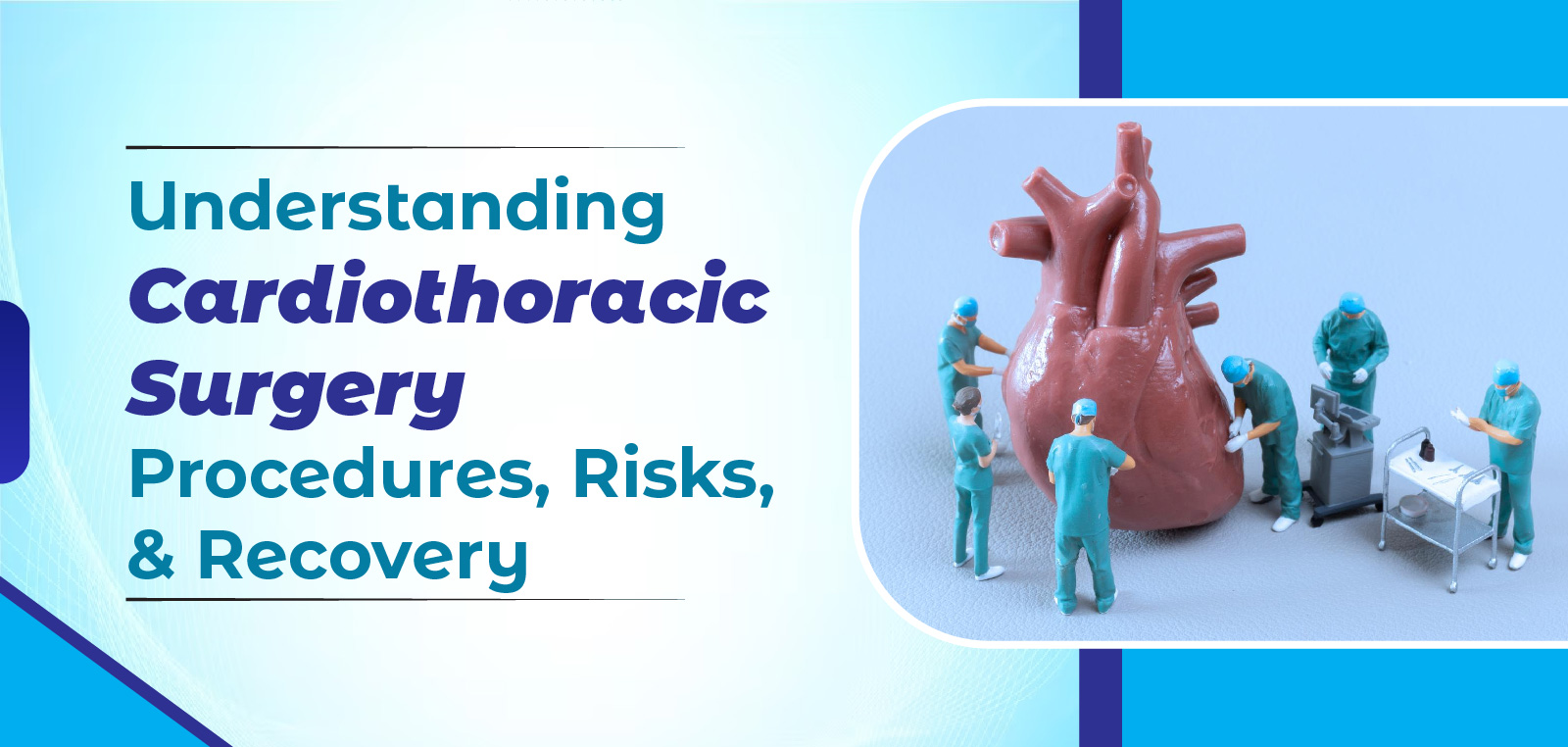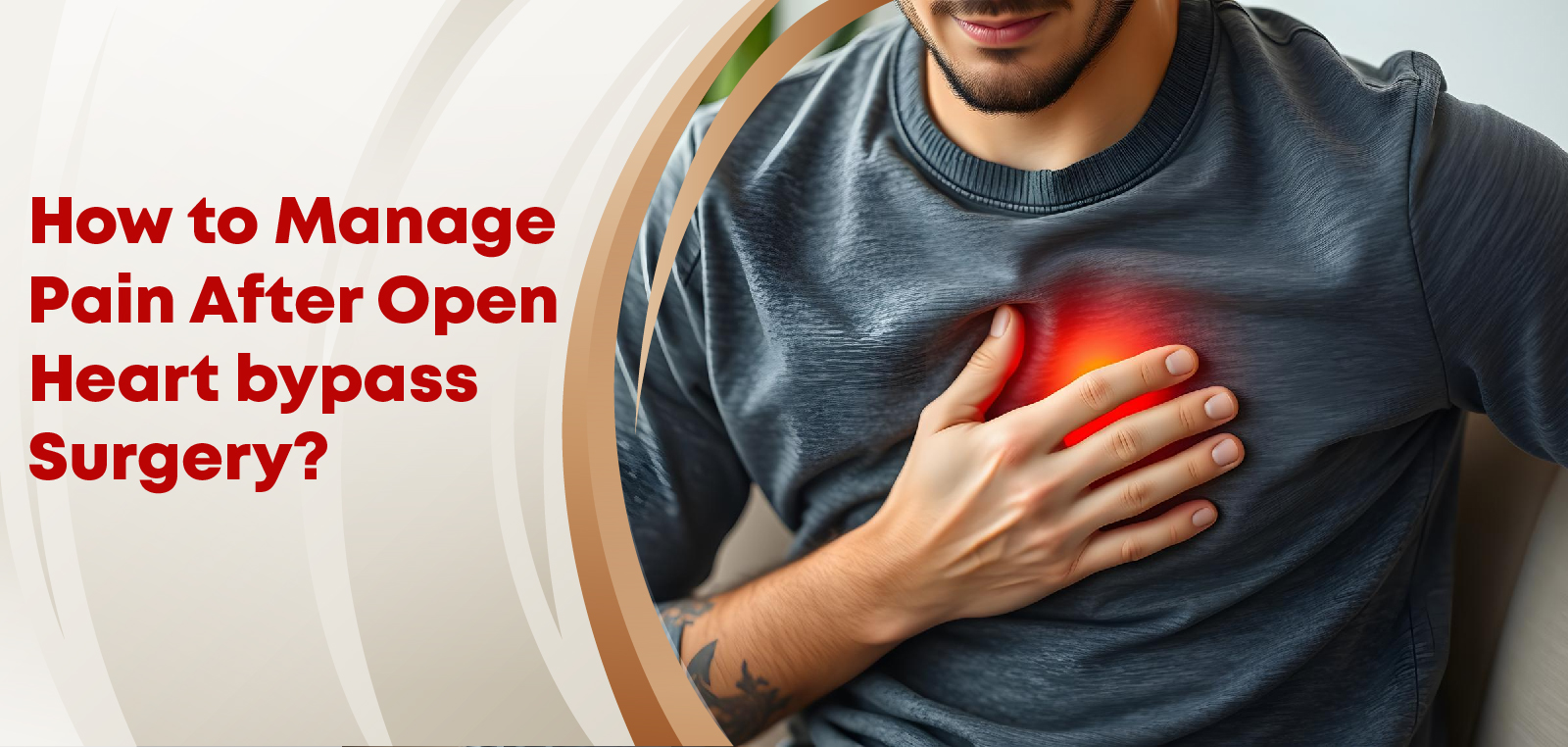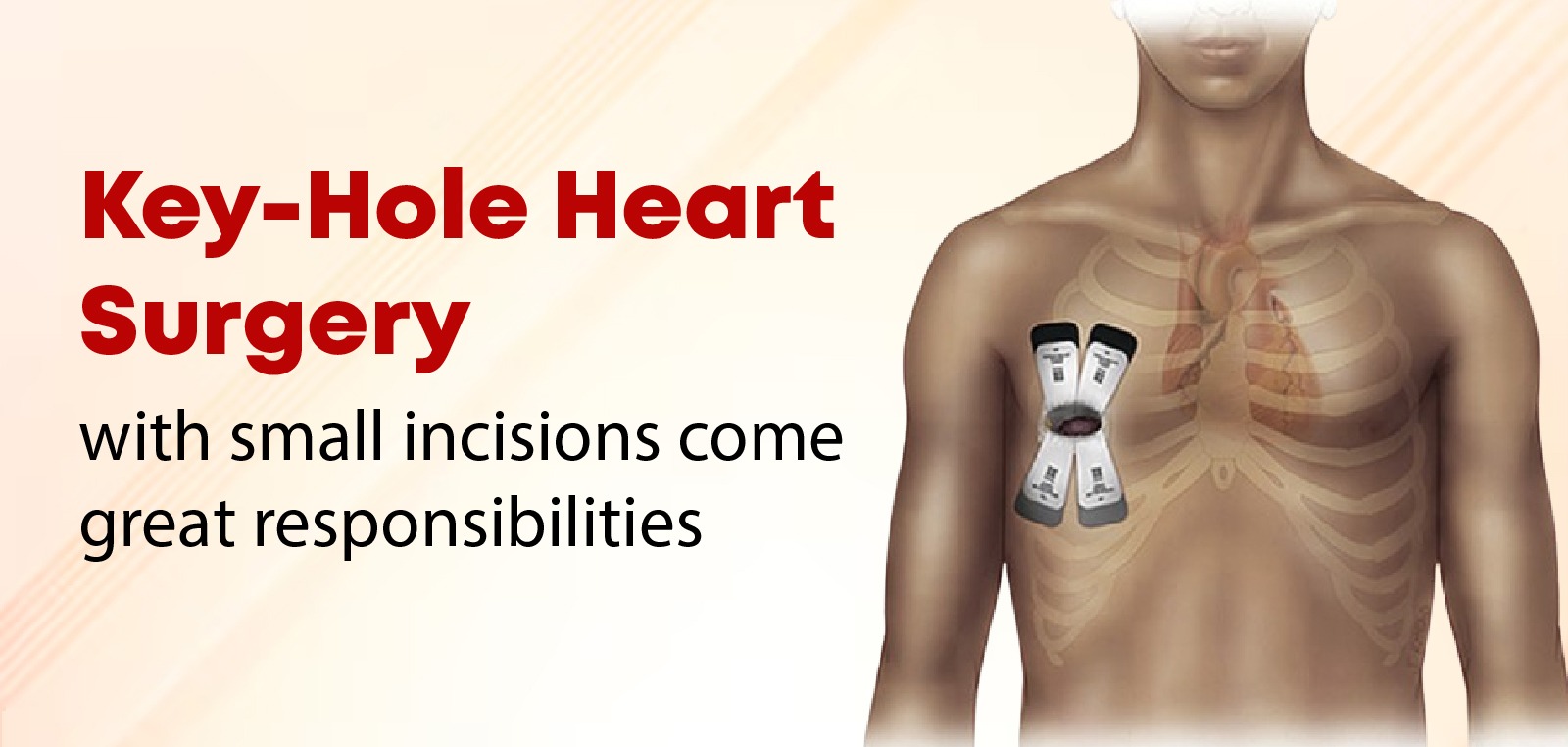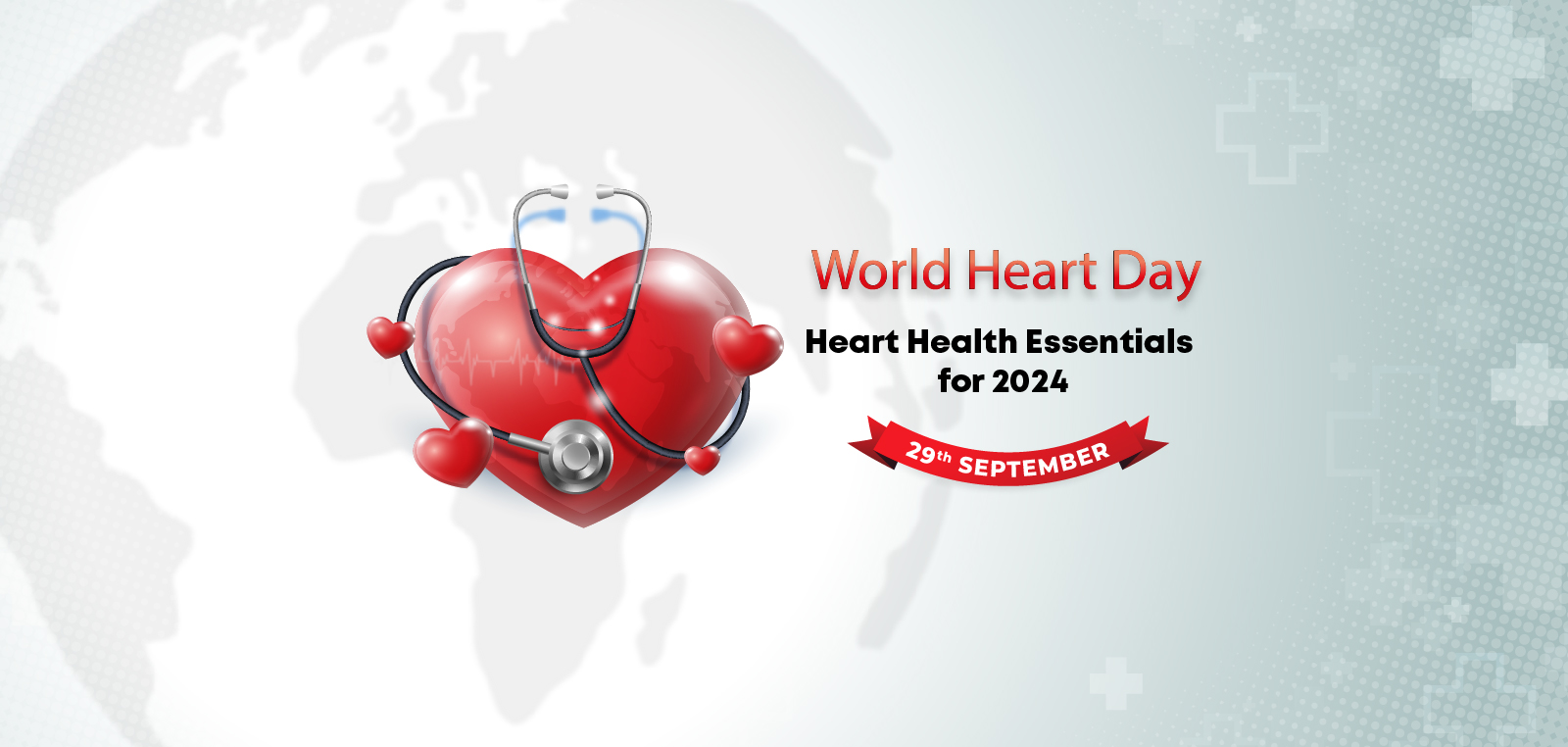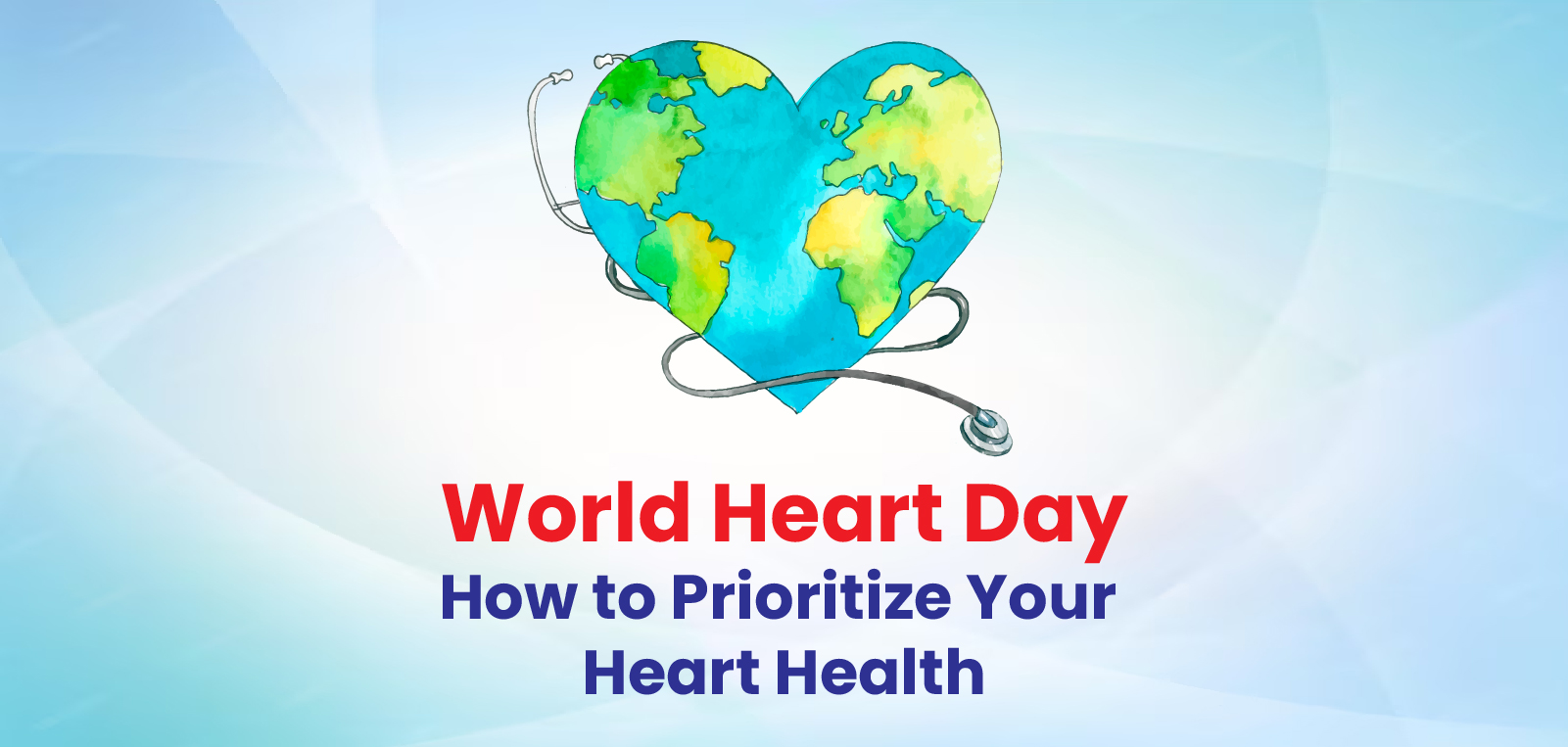- Mon - Sat : 5:30 - 8:30
- Sunday - CLOSED
- +91 99304 53556
- drshridhargpadagatti@gmail.com
- Khar(W), Mumbai
- 001, Himath Ghar
stop smoking
- admindrshridhar
- 0 Comments
Stress and Your Heart: How to Manage Anxiety for a Healthy Heart
Stress and Your Heart: How to Manage Anxiety for a Healthy Heart Modern life can be fast-paced, demanding, and often overwhelming. From juggling professional responsibilities to managing personal commitments, stress has become a constant companion for many. While occasional stress is a normal part of life, chronic stress can take a toll on your overall health—particularly your heart. At Active Heart Clinic, Dr. Shridhar Padagatti emphasizes the importance of understanding how stress affects your heart and adopting effective strategies to manage anxiety for a healthier life. The Connection Between Stress and Heart Health Your body is designed to respond to stress through a natural “fight-or-flight” mechanism. During stressful situations, your body releases hormones like adrenaline and cortisol, which increase your heart rate, blood pressure, and energy levels. While this response can be beneficial in short bursts, prolonged stress keeps your body in overdrive, putting excessive strain on your cardiovascular system. Here’s how chronic stress impacts your heart: Increased Heart Rate and Blood Pressure: Prolonged stress raises your blood pressure, which can damage arteries over time and increase the risk of heart attacks or strokes. Elevated Risk of Inflammation: Stress triggers inflammatory responses in the body, contributing to plaque buildup in the arteries, leading to atherosclerosis. Unhealthy Coping Mechanisms: Stress often leads to unhealthy behaviors like overeating, smoking, or excessive alcohol consumption—all of which harm your heart. Heart Rhythm Disorders: Chronic stress and anxiety can lead to arrhythmias (irregular heartbeats), which may escalate into more severe conditions. Signs That Stress Is Affecting Your Heart It’s crucial to recognize when stress is impacting your cardiovascular health. Common warning signs include: Frequent chest pain or tightness Increased heart rate or palpitations Difficulty sleeping or chronic fatigue Frequent headaches or migraines Shortness of breath, even during light physical activity If you experience any of these symptoms, consult a heart specialist like Dr. Shridhar Padagatti to assess your heart health and develop a treatment plan tailored to your needs. How to Manage Anxiety for a Healthy Heart Practice Mindfulness: Spend 10 minutes daily on deep breathing or meditation to calm your mind. Stay Active: Aim for 30 minutes of moderate exercise, like walking or yoga, five times a week. Eat a Balanced Diet: Include leafy greens, omega-3-rich fish, whole grains, and berries. Avoid processed foods and high-sodium snacks. Prioritize Sleep: Stick to a regular sleep schedule and create a calming bedtime routine. Build Social Connections: Spend time with loved ones for emotional support and stress relief. Limit Alcohol and Caffeine: Replace sugary drinks with herbal teas and moderate alcohol intake. Seek Professional Help: Consult a therapist or stress management expert when needed. Why Choose Active Heart Clinic for Stress-Related Heart Care At Active Heart Clinic, we believe in a holistic approach to heart health. Dr. Shridhar Padagatti and his expert team understand that managing stress is an integral part of maintaining a healthy heart. Whether it’s through lifestyle counseling, medical interventions, or advanced diagnostic services, we’re here to support you at every step of your journey to better health. Conclusion Stress is an inevitable part of life, but it doesn’t have to control your heart health. By incorporating mindfulness practices, staying active, eating a balanced diet, and prioritizing self-care, you can significantly reduce anxiety and protect your heart. If you’re concerned about how stress is affecting your heart, visit Active Heart Clinic today. Let us help you take proactive steps toward a stress-free and heart-healthy life Address – 001, Himath Ghar. Plot No. 539-A Opp Khatri Manzil 13th Road Khar (W) Email: drshridhargpadagatti@gmail.com Contact No. +91 99304 53556
- admindrshridhar
- 0 Comments
Some Bad Habits that can Affect Your Heart Valves
Some Bad Habits that can Affect Your Heart Valves The human heart is a remarkable organ with a sophisticated system designed to keep the blood flowing in a steady, regulated manner. A vital part of this system involves the four heart valves—mitral, tricuspid, pulmonary, and aortic—which open and close to control the movement of blood through the heart and to the rest of the body. These valves have flaps that must work properly to ensure the blood flows efficiently and that no blood is lost through improper closure or narrowed openings. However, when these heart valves fail to function optimally, it can disrupt the normal flow of blood. Valve dysfunction can lead to serious conditions such as heart failure, and in some cases, the valves may need to be replaced through surgery. Experts specializing in heart valve replacement surgery in Khar, Mumbai suggest that heart valve problems can either be congenital (present at birth) or develop later in life, often due to underlying medical conditions or poor lifestyle choices. Two common problems that affect heart valves are: Regurgitation: This occurs when the flaps of the valve do not close properly, causing blood to flow backward. Stenosis: This happens when the valve flaps stiffen or thicken, leading to a narrowing of the valve, which obstructs normal blood flow. Although some factors that increase the risk of valve problems, such as genetics and age, are beyond our control, many are preventable. Unhealthy habits like poor diet, lack of exercise, and stress can significantly increase the likelihood of developing valve issues. By making healthy lifestyle choices, you can lower your risk of developing heart valve conditions and improve your overall heart health. Habits that can Negatively Affect your heart Valves : 1. Spending Most of Your Day Sitting A sedentary lifestyle is one of the leading causes of numerous health problems, including heart valve issues. Prolonged sitting, especially for 5 to 6 hours at a stretch, is linked to an increased risk of heart failure, primarily because it makes it difficult for the body to manage risk factors like diabetes, hypertension, and high cholesterol. These risk factors can, in turn, affect the health of your heart valves. To combat this, make sure to take regular breaks from sitting. Even if your job requires long periods of sitting, make it a point to stand, walk around, or stretch every 30 minutes. Simple activities like standing up or taking a brisk walk for a few minutes can help keep your heart healthy and ensure that blood is circulating properly throughout your body. 2. Drinking Beyond the Safety Limits While moderate alcohol consumption can be part of a healthy lifestyle for some people, excessive drinking has been shown to have a negative impact on heart health. Drinking alcohol in large amounts can increase blood pressure, damage the heart muscle, and raise the levels of certain harmful fats in the blood, all of which can damage your heart valves over time. If you already have heart disease, it’s advisable to avoid alcohol altogether, as it may exacerbate existing conditions. It’s important to drink in moderation—perhaps a glass of wine on occasion or a cocktail at a social gathering—but avoid making alcohol a regular habit. By limiting your alcohol intake, you can protect your heart valves and reduce the risk of further complications. 3. Taking Too Much Stress Stress is an inevitable part of life, but chronic stress can wreak havoc on your heart. When you’re under stress, your body releases adrenaline and cortisol, hormones that prepare your body for the “fight-or-flight” response. These hormones elevate your heart rate and blood pressure, which over time can damage your blood vessels and heart valves, increasing your risk of heart disease, heart attacks, and strokes. It’s essential to find healthy ways to manage stress, such as practicing mindfulness, meditation, yoga, or deep breathing exercises. If stress is overwhelming and affecting your health, don’t hesitate to seek support from a mental health professional or counselor. Managing stress effectively can significantly improve your heart health and protect your valves from unnecessary strain. 4. Taking Too Much Salt Salt is a common ingredient in many foods, but excessive sodium intake can have a negative impact on your heart health, including the functioning of your heart valves. High salt consumption can lead to high blood pressure, which places extra pressure on the heart and its valves. Over time, this strain can contribute to the development of valve problems, particularly stenosis (narrowing of the valve). To maintain a heart-healthy diet, try to reduce the amount of salt you use in cooking and opt for lower-sodium alternatives. Be mindful of packaged and processed foods, which often contain high levels of hidden salt. If you already have high blood pressure or other risk factors, it’s essential to consult with a doctor to determine how much sodium is safe for your diet. 5. Smoking Smoking is one of the most harmful habits for your heart. The chemicals in tobacco smoke can damage blood vessels and lead to the buildup of plaque in the arteries, which can eventually affect the heart valves. Smokers are at a higher risk of developing atherosclerosis (hardening of the arteries), which can contribute to valve problems, including stenosis. If you smoke, quitting is the most effective way to improve your heart health and prevent further damage to your valves. There are various resources and support systems available to help you quit smoking, including nicotine replacement therapies, counseling, and support groups. 6. Being Overweight or Obese Excess weight can significantly impact your heart health, including the functioning of your heart valves. Obesity increases the risk of high blood pressure, diabetes, and high cholesterol—all of which are known risk factors for heart disease and valve problems. Additionally, carrying extra weight puts more strain on your heart, forcing it to work harder and potentially damaging the heart valves over time. To maintain a healthy weight, aim for a balanced diet rich in fruits, vegetables, lean proteins,
- admindrshridhar
- 0 Comments
Everything You Need to Know About Symptoms of High Cholesterol
Everything You Need to Know About Symptoms of High Cholesterol Cholesterol is a waxy substance found in your blood that plays a crucial role in various bodily functions, including producing hormones and vitamin D. However, high levels of cholesterol, particularly low-density lipoprotein (LDL) or “bad” cholesterol, can increase your risk of developing heart disease, stroke, and other cardiovascular problems. The surprising fact is that high cholesterol often doesn’t cause any noticeable symptoms until it’s too late. Understanding the potential signs and symptoms of high cholesterol can help you take proactive steps to manage your cholesterol levels and reduce your risk of serious health complications. What is High Cholesterol? Cholesterol is a type of lipid (fat) that is produced naturally by the liver and also obtained from the foods we eat. There are two main types of cholesterol Low-Density Lipoprotein (LDL) Cholesterol: Often referred to as “bad” cholesterol, LDL cholesterol can build up in the walls of your arteries, causing them to narrow and increasing the risk of heart disease and stroke. High-Density Lipoprotein (HDL) Cholesterol: Known as “good” cholesterol, HDL helps remove LDL cholesterol from your arteries and transport it to the liver for elimination. High cholesterol is typically defined as having an LDL cholesterol level above 160 mg/dL (4.1 mmol/L) or a total cholesterol level above 200 mg/dL (5.2 mmol/L). Signs and Symptoms of High Cholesterol Unfortunately, high cholesterol doesn’t usually cause any noticeable symptoms until it has already caused significant damage to your arteries or led to a serious health event. However, there are some potential signs and symptoms that you should be aware of: Chest Pain or Angina: As cholesterol builds up in the arteries, it can restrict blood flow to the heart muscle, causing chest pain or discomfort known as angina. This pain may occur during physical activity or emotional stress. Shortness of Breath: If the arteries supplying blood to the lungs become narrowed due to cholesterol buildup, you may experience shortness of breath or difficulty breathing, especially during physical exertion. Fatigue: High cholesterol can reduce blood flow and oxygen supply to various organs and muscles, leading to feelings of fatigue or weakness. Numbness or Tingling in Extremities: Reduced blood flow due to cholesterol buildup in the arteries can cause numbness or tingling in the arms, legs, or other extremities. Stroke Symptoms: In severe cases, cholesterol buildup can lead to a stroke, which may cause symptoms such as sudden numbness or weakness in the face, arms, or legs, confusion, trouble speaking or understanding speech, and vision problems. It’s important to note that these signs and symptoms are not specific to high cholesterol and can also be associated with other health conditions. Many people with high cholesterol may not experience any noticeable symptoms at all. Risk Factors for High Cholesterol Several factors can contribute to the development of high cholesterol levels, including: Unhealthy Diet: A diet high in saturated and trans fats, as well as cholesterol-rich foods, can increase LDL cholesterol levels. Obesity: Being overweight or obese can lead to high cholesterol levels, as excess body fat is associated with lower HDL cholesterol and higher LDL cholesterol. Lack of Physical Activity: Regular physical activity helps to increase HDL cholesterol levels and lower LDL cholesterol levels. Smoking: Smoking can lower HDL cholesterol levels and increase the risk of heart disease and stroke. Age: As you get older, your cholesterol levels tend to rise, particularly in women after menopause. Family History: Your genetic makeup can influence your cholesterol levels, and having a family history of high cholesterol or heart disease can increase your risk. Certain Medical Conditions: Certain medical conditions, such as diabetes, hypothyroidism, and kidney disease, can contribute to high cholesterol levels. Diagnosis and Treatment Since high cholesterol often doesn’t cause noticeable symptoms, regular cholesterol screening is essential for early detection and management. Your healthcare provider may recommend a lipid panel blood test to measure your total cholesterol, LDL cholesterol, HDL cholesterol, and triglyceride levels. If your cholesterol levels are found to be high, your healthcare provider may recommend lifestyle changes and/or medication to help manage your cholesterol levels and reduce your risk of heart disease and stroke. Lifestyle Changes 1. Adopt a heart-healthy diet: Focus on foods low in saturated and trans fats, and high in fiber, such as fruits, vegetables, whole grains, lean proteins, and healthy fats like olive oil and nuts. 2. Increase Physical Activity: Regular exercise can help raise HDL cholesterol levels and lower LDL cholesterol levels. 3. Maintain a Healthy Weight: Losing excess weight can improve cholesterol levels and overall cardiovascular health. 4. Quit Smoking: Smoking can significantly increase your risk of heart disease and stroke, in addition to lowering HDL cholesterol levels. 5. Manage Stress: High stress levels can contribute to unhealthy lifestyle choices and potentially affect cholesterol levels. Medications: If lifestyle changes alone are not enough to lower your cholesterol levels, your healthcare provider may prescribe cholesterol-lowering medications, such as: 1. Statins: These medications work by blocking an enzyme in the liver that produces cholesterol, effectively lowering LDL cholesterol levels. 2. Bile Acid Sequestrants: These medications bind to bile acids in the digestive system, preventing them from being reabsorbed into the bloodstream, which can lower LDL cholesterol levels. 3. Cholesterol Absorption Inhibitors: These medications work by reducing the absorption of cholesterol from the intestines, lowering LDL cholesterol levels. 4. Fibrates: These medications can help lower triglyceride levels and, in some cases, raise HDL cholesterol levels. It’s important to follow your healthcare provider’s recommendations and take any prescribed medications as directed to effectively manage your cholesterol levels and reduce your risk of heart disease and other complications. Dr. Shridhar Padgatti and Active Heart Clinic If you’re concerned about high cholesterol and its potential risks, it’s vital to seek professional help. Dr. Shridhar Padgatti, a renowned cardiac and vascular surgeon at Active Heart Clinic, offers expert consultation and guidance for managing heart health, including the prevention and treatment of high cholesterol. Through personalized care, lifestyle recommendations, and advanced medical treatments, Dr. Padagatti
- admindrshridhar
- 0 Comments
The Role of Cardiovascular Health in Preventing Heart Disease
The Role of Cardiovascular Health in Preventing Heart Disease Heart disease is the leading cause of death worldwide, but it is largely preventable. At the core of heart disease prevention is cardiovascular health, which encompasses the well-being of the heart and blood vessels. Understanding the importance of cardiovascular health, the factors that influence it, and ways to maintain it can empower individuals to lead healthier, longer lives. At Active Heart Clinic, under the expertise of Dr. Shridhar G. Padagatti, patients receive comprehensive care and guidance for managing and improving cardiovascular health. This blog explores how cardiovascular health impacts heart disease prevention and provides actionable tips to keep your heart strong. What is Cardiovascular Health? Cardiovascular health refers to the optimal functioning of the heart and blood vessels. A healthy cardiovascular system efficiently pumps blood, delivering oxygen and nutrients to the body’s tissues while removing waste products. Good cardiovascular health lowers the risk of developing conditions such as: Coronary artery disease (CAD)– Hypertension (high blood pressure) Stroke– Heart failure Several measurable factors define cardiovascular health, including: Blood Pressure: Maintaining normal blood pressure (<120/80 mmHg) reduces strain on the heart and arteries.Cholesterol Levels: Healthy cholesterol levels prevent plaque buildup in arteries.Blood Sugar Levels: Controlled blood glucose minimizes damage to blood vessels.Body Weight: A healthy weight reduces the risk of heart disease.Physical Activity: Regular exercise strengthens the heart and improves circulation.Diet: Nutrient-rich foods support overall cardiovascular health. How Cardiovascular Health Prevents Heart Disease Prevention of AtherosclerosisAtherosclerosis, or the hardening of arteries due to plaque buildup, is a major cause of heart disease. Healthy cholesterol levels and a balanced diet prevent plaque formation, ensuring smooth blood flow. Reduction in Hypertension RiskHigh blood pressure strains the heart and damages arteries, increasing the risk of heart attacks and strokes. Cardiovascular fitness achieved through exercise and weight management keeps blood pressure in check. Better Blood CirculationA strong cardiovascular system ensures efficient blood circulation, reducing the risk of ischemic conditions like heart attacks and angina. Improved Heart Muscle FunctionRegular physical activity strengthens the heart muscle, improving its efficiency and reducing the likelihood of heart failure. Lower Inflammation LevelsChronic inflammation can damage blood vessels and contribute to heart disease. A heart-healthy lifestyle minimizes inflammation, reducing overall risk. Risk Factors Affecting Cardiovascular HealthUnhealthy DietDiets high in saturated fats, trans fats, sugar, and salt can lead to obesity, hypertension, and high cholesterol. Sedentary LifestylePhysical inactivity contributes to obesity, weakens the heart muscle, and increases the risk of metabolic disorders. Smoking and Excessive AlcoholSmoking damages blood vessels, while excessive alcohol raises blood pressure and weakens the heart. Stress and Sleep DeprivationChronic stress and inadequate sleep disrupt hormonal balance, increasing the risk of hypertension and heart disease. Genetics and AgeA family history of heart disease or advanced age can increase risk, but a healthy lifestyle can mitigate these factors. Tips for Maintaining Cardiovascular Health Adopt a Heart-Healthy Diet Emphasize fruits, vegetables, whole grains, lean proteins, and healthy fats (like omega-3 fatty acids).Reduce sodium and processed sugar intake. Stay Physically Active Aim for at least 150 minutes of moderate aerobic activity weekly, such as brisk walking, swimming, or cycling.Incorporate strength training exercises twice a week. Monitor Key Health Metrics Regularly check your blood pressure, cholesterol, and blood sugar levels.Seek medical advice for abnormal readings. Quit Smoking Smoking cessation improves blood circulation and reduces the risk of heart disease within weeks. Manage Stress Practice relaxation techniques like yoga, meditation, or deep breathing exercises.Stay connected with friends and family for emotional support. Sleep Well Aim for 7-9 hours of quality sleep each night to allow your body to recover and repair. Limit Alcohol Consumption Keep alcohol intake moderate, with no more than one drink per day for women and two for men. The Role of Regular Check-UpsPreventive healthcare plays a crucial role in cardiovascular health. Regular screenings help detect issues like hypertension, high cholesterol, or prediabetes before they lead to severe complications. At Active Heart Clinic, Dr. Shridhar G. Padagatti emphasizes early intervention and personalized treatment plans to address individual risk factors. Address – 001, Himath Ghar. Plot No. 539-A Opp Khatri Manzil 13th Road Khar (W) Email: drshridhargpadagatti@gmail.com Contact No. +91 99304 53556
- admindrshridhar
- 0 Comments
Understanding Cardiothoracic Surgery: Procedures, Risks, and Recovery
Understanding Cardiothoracic Surgery: Procedures, Risks, and Recovery Cardiothoracic surgery is a specialized field focusing on the surgical treatment of diseases affecting the heart, lungs, esophagus, and other organs within the chest cavity. With advancements in medical technology and surgical techniques, this field has transformed the prognosis for patients with complex cardiovascular and thoracic conditions. At Active Heart Clinic, led by the highly experienced Dr. Shridhar G. Padagatti, patients receive expert care tailored to address a variety of conditions through cutting-edge procedures. What is Cardiothoracic Surgery? Cardiothoracic surgery encompasses two major areas: Cardiac Surgery: Deals with the heart and great vessels. Common surgeries include coronary artery bypass grafting (CABG), valve repair/replacement, and heart defect repairs.Thoracic Surgery: Focuses on diseases of the lungs, esophagus, and chest wall. Procedures may include lung resections, decortication, and management of thoracic aneurysms.These surgeries require exceptional precision and expertise, as the organs in this region are vital to life and function. Common Procedures in Cardiothoracic SurgeryDr. Shridhar G. Padagatti has a remarkable track record of performing complex cardiothoracic procedures with excellent outcomes. Some of the most common surgeries include: Coronary Artery Bypass Grafting (CABG)This procedure reroutes blood around blocked or narrowed coronary arteries using a graft vessel, often from the leg or chest. Dr. Padagatti specializes in off-pump CABG and innovative techniques like LIMA-RIMA ‘Y’ grafting, offering superior long-term results. Valve Repairs and ReplacementsValve surgeries address malfunctioning heart valves. Dr. Padagatti has extensive experience in mitral and aortic valve replacements, as well as double valve surgeries, restoring normal blood flow and cardiac function. Congenital Heart Defect RepairsFor conditions like atrial septal defects (ASD) or ventricular septal defects (VSD), surgery repairs structural abnormalities in the heart that impede proper blood circulation. Thoracic SurgeriesConditions like lung infections, tumors, and collapsed lungs are treated through procedures such as lung decortication or lobectomy. Dr. Padagatti also addresses vascular thoracic conditions, including pseudoaneurysm repair and embolectomy. Varicose Vein Surgery and AV Fistula CreationFor vascular issues, Dr. Padagatti performs minimally invasive procedures like varicose vein surgery, alleviating discomfort and improving circulation. Risks Associated with Cardiothoracic Surgery Risks Associated with Cardiothoracic SurgeryAlthough cardiothoracic surgery can be life-saving, it carries inherent risks, including: Infections: The surgical site or lungs may become infected, requiring prompt treatment.Bleeding: Excessive bleeding during or after surgery is a potential risk.Stroke or Heart Attack: These may occur in rare cases, especially in high-risk patients.Respiratory Issues: Some patients may face difficulty breathing post-surgery.Blood Clots: Risks of deep vein thrombosis (DVT) or embolisms may arise. At Active Heart Clinic, these risks are mitigated by meticulous pre-operative planning, advanced surgical techniques, and comprehensive post-operative care under the expertise of Dr. Padagatti. Recovery After Cardiothoracic SurgeryRecovery varies based on the complexity of the procedure and individual patient health. However, a structured recovery plan can ensure optimal healing: Post-Surgery Hospital StayPatients typically stay in the ICU for 1–2 days for close monitoring, followed by a few days in a recovery ward. MedicationsAnti-inflammatory drugs, blood thinners, and antibiotics may be prescribed to manage pain, prevent infections, and reduce clotting risks. Physical RehabilitationCardiac rehabilitation programs focus on restoring strength and endurance through supervised exercises and lifestyle modifications. Lifestyle Adjustments A heart-healthy diet, rich in fruits, vegetables, and lean proteins, is essential.Avoid smoking, excessive alcohol, and high-stress environments.Regular physical activity, as recommended by the doctor, aids recovery. Follow-Up CareRegular follow-ups are crucial to monitor recovery progress and address any complications. Why Choose Active Heart Clinic? At Active Heart Clinic, Dr. Shridhar G. Padagatti combines his vast expertise and compassionate approach to provide top-notch care. With an impressive educational background, including an MBBS from JNMC Belgaum, an MS in General Surgery from Goa Medical College, and a super-specialization in CVTS from Seth GS Medical College, Mumbai, Dr. Padagatti is one of the leading cardiothoracic surgeons in India. Over the years, he has worked in prestigious hospitals, including P.D. Hinduja Hospital, Wockhardt Hospital, and Holy Spirit Hospital. His proficiency in performing complex surgeries like off-pump CABG, aortic valve replacement, and femoro-popliteal bypass highlights his unmatched skill. The Patient-Centric ApproachDr. Padagatti believes in providing individualized care, addressing each patient’s unique medical needs, and empowering them with knowledge about their condition and treatment options. His collaborative approach ensures patients feel confident and informed throughout their journey. ConclusionCardiothoracic surgery has revolutionized the treatment of life-threatening heart and thoracic conditions. With expert surgeons like Dr. Shridhar G. Padagatti at Active Heart Clinic, patients have access to world-class care and advanced surgical solutions. By understanding the procedures, risks, and recovery involved, patients can approach their treatment with greater confidence and peace of mind. For consultations or to learn more about how Dr. Padagatti can help with your cardiothoracic health, contact Active Heart Clinic today. Your heart deserves the best care! Address – 001, Himath Ghar. Plot No. 539-A Opp Khatri Manzil 13th Road Khar (W) Email: drshridhargpadagatti@gmail.com Contact No. +91 99304 53556
- admindrshridhar
- 0 Comments
How to Manage Pain After Open Heart Bypass Surgery
How to Manage Pain After Open Heart Bypass Surgery “Open-heart bypass surgery is a major procedure performed to relieve severe coronary artery blockages that hinder blood flow to the heart. This process creates an alternative route for blood to bypass obstructed arteries, often blocked by plaque—a combination of calcium, cholesterol, and other substances. When plaque builds up along arterial walls, blood flow to the heart muscle reduces, which can lead to conditions like angina or severe heart attacks. For those with advanced coronary artery disease or ineffective treatments through medication or lifestyle adjustments, bypass surgery may be essential.” Given the significance of this surgery, proper post-operative pain management is critical to ensure a safe and effective recovery. This guide provides insights on managing pain after bypass surgery to facilitate a smoother healing journey. Why Pain Management is Essential After Bypass Surgery Effective pain management post-surgery can significantly boost your recovery rate. A well-planned pain management strategy will not only help you begin physical exercises like walking and breathing routines sooner but can also lower the risk of post-operative complications. By following a pain management routine, you can gain control over your recovery and gradually rebuild strength, ultimately supporting your heart health and overall well-being. Types of Pain You May Experience After Bypass Surgery Pain levels and locations may vary from person to person, but some common post-operative discomforts include: 1) Muscle Pain: Due to the nature of the procedure, you might feel discomfort in your neck, shoulders, or back. 2) Chest Pain: The insertion of chest tubes during surgery may lead to soreness in the chest area. 3) Surgical Site Pain: It’s normal to experience mild to moderate pain around the incision site as it begins to heal. Precautions to Follow After Bypass Surgery To improve recovery after heart bypass surgery, it’s essential to adhere to specific precautionary measures: 1) Take Prescribed Medications: Your doctor will likely prescribe new medications post-surgery. Painkillers, in particular, should be taken as advised to manage discomfort, especially before engaging in physical activity. 2) Avoid Infections at the Incision Site: Keeping the surgical wound clean and dry can prevent infections. Gently cleanse the area with an antimicrobial as per your doctor’s instructions. 3)Resume Physical Activity Gradually: Start with light physical activities under medical supervision. Avoid lifting heavy items or standing for long periods. Always consult with your chest pain doctor if you experience any discomfort. 4) Prioritize a Heart-Healthy Diet: A nutritious diet plays a vital role in recovery. Although appetite may initially decrease, it’s essential to eat well-balanced meals, cutting back on saturated fats, sugars, and processed foods. 5) Care for Your Mental Health: Recovery often involves prolonged bed rest, which may lead to feelings of frustration or mental fatigue. Journaling, meditation, or engaging in light activities that you enjoy can improve your mental well-being 6) Ease Into Activities Like Driving: After about six to eight weeks, you may be ready to return to light activities like driving. However, be sure to consult your doctor before engaging in strenuous tasks, and avoid pushing or pulling heavy objects until fully cleared. 7) Prioritize Rest and Sleep: Proper sleep can be challenging after surgery, but it’s essential. Taking your pain medications around 30 minutes before bedtime may help, as can establishing a regular nighttime routine. Avoid caffeine in the evening and consider listening to calming music to help signal to your body that it’s time for sleep Important Takeaways Recovery from coronary bypass surgery typically takes three to four months, depending on the severity of the procedure. By following a personalized recovery plan and making lifestyle adjustments, you can enhance your recovery experience. Long-term heart health also depends on maintaining a healthy lifestyle, including regular exercise, balanced nutrition, and monitoring for any recurrence of heart disease symptoms. If you or a loved one are considering or recovering from heart bypass surgery, consulting a trusted chest pain doctor can provide the tailored guidance and support necessary for a smooth recovery. Address – 001, Himath Ghar. Plot No. 539-A Opp Khatri Manzil 13th Road Khar (W) Email: drshridhargpadagatti@gmail.com Contact No. +91 99304 53556
- admindrshridhar
- 0 Comments
Keyhole Heart Surgery-With Small Incisions Come Great Responsibilities
Key hole Heart Surgery: With Small Incisions Come Great Responsibilities Keyhole heart surgery, also known as minimally invasive heart surgery, has gained popularity in several surgical specialties, including gynecology, urology, and orthopedics. However, this trend is still slow to catch on in cardiac surgery, especially in countries like the UK. Despite some pioneering centers adopting this advanced surgical technique, others continue to rely on traditional approaches due to various challenges associated with learning and perfecting the method. This blog will explore the history, benefits, and responsibilities involved in keyhole heart surgery, with a focus on the journey to adopting this technique at Active Heart Clinic in Mumbai, under the guidance of Dr. Shridhar G. Padagatti, one of the region’s leading cardio-thoracic and vascular surgeons. A Historical Overview of Keyhole Heart Surgery The journey toward minimally invasive heart surgery began in the late 1990s, when several cardiac surgery centers across Europe and the UK attempted to establish programs for minimally invasive mitral valve surgery. However, the technology available at the time, including early versions of thoracoscopes, was relatively basic, and complications led many centers to abandon these programs. Yet, two groups—one led by Dr. Hugo Vanerman in Aalst, Belgium, and another by Dr. Friedrich Mohr in Leipzig, Germany—persisted with keyhole mitral valve surgery, investing in new technologies and refining their methods. Over the years, they achieved great success and published studies showcasing their results. Today, these advancements have spurred a renewed interest in minimally invasive mitral valve surgery, especially across Europe, with Germany and Belgium seeing over 60% of mitral valve procedures performed using keyhole surgery. However, in the UK, adoption rates remain below 5%, primarily due to concerns regarding patient safety and financial considerations within the healthcare system. Minimally Invasive Heart Surgery in India Dr. Shridhar G. Padagatti and his team at the Active Heart Clinic in Mumbai represent a growing number of Indian cardiac specialists adopting advanced minimally invasive techniques. Since launching their program in 2007 at the Lancashire Cardiac Centre, Dr. Padagatti and his team have gained extensive experience performing keyhole heart surgeries, often using advanced tools like the Endoclamp—a device patented by Edwards Lifesciences. This device isolates the heart during surgery and helps deliver a potassium solution that temporarily stops the heart, allowing for precise surgical corrections without large incisions. The team’s commitment to continuous improvement has positioned the Active Heart Clinic as a leading center for minimally invasive mitral and tricuspid valve surgeries, as well as procedures for atrial septal defects and atrial fibrillation. Dr. Padagatti’s extensive background, including his specialized training in cardiovascular and thoracic surgery, allows him to bring a level of expertise that ensures patient safety and successful outcomes. Why Keyhole Heart Surgery? Keyhole heart surgery offers several advantages over traditional open-heart surgery, the most notable being smaller incisions. This results in fewer complications, faster recovery times, reduced blood transfusions, and lower infection rates. Here are some of the main benefits: Reduced Blood Transfusions: In traditional open-heart surgeries, the need for blood transfusions can be significant due to the large incisions involved. With keyhole surgery, the risk of blood loss is minimized. At Active Heart Clinic, only about 5% of patients who undergo keyhole mitral valve surgery require transfusions, compared to 18% of patients who have traditional sternotomy procedures. Shorter Recovery Time: Patients undergoing keyhole surgery typically experience shorter hospital stays. The reduced trauma to the chest allows for a faster recovery, with most patients returning to their normal activities sooner than those undergoing open-heart surgery. Cosmetic Benefits: For patients concerned about visible scarring, keyhole surgery is an attractive option, as it results in much smaller, less noticeable scars. Reduced Infection Rates: Smaller incisions mean a lower risk of infection, a critical factor for patients with underlying health conditions or those undergoing repeat heart surgeries. The Challenges of Keyhole Surgery Despite its benefits, minimally invasive heart surgery comes with challenges that make it difficult to adopt universally. These include: Complexity of the Procedure: Keyhole heart surgery requires specialized training and the use of advanced, costly instruments like the Endoclamp. The surgeon must rely heavily on video-assisted thoracoscopic technology and Transesophageal Echocardiography (TOE) to guide the surgery accurately. Initial Cost Considerations: The cost of acquiring advanced tools and training for the surgical team is a significant investment. In India, where healthcare costs are often closely scrutinized, convincing stakeholders of the long-term benefits can be challenging. Risk of Complications: While rare, there are some risks associated with keyhole heart surgery. For instance, the redirection of blood flow can cause small particles to travel to the brain, increasing the risk of stroke. However, preoperative scans and thorough patient selection can help mitigate these risks, and Active Heart Clinic has not recorded any strokes in the last 100 mitral valve cases. Overcoming the Challenges: A Focus on Teamwork and Training Dr. Padagatti and his team recognize that the success of keyhole heart surgery depends on effective teamwork and thorough training. Cardiac surgeons often spend over 20 years honing their skills, and introducing new procedures requires additional training for everyone involved. The entire team, including anaesthetists, nursing staff, and technicians, must be well-coordinated for minimally invasive procedures to succeed. At Active Heart Clinic, the team’s efforts are bolstered by the use of advanced imaging technologies, such as high-definition screens and three-dimensional thoracoscopes, which provide greater detail than the naked eye could see. These advancements have made minimally invasive mitral valve surgery safer and more efficient. By training extensively and collaborating with centers that specialize in keyhole surgery, Dr. Padagatti’s team continues to refine their approach, ensuring the best possible outcomes for patients. The Future of Keyhole Heart Surgery in India The future of cardiac surgery, particularly in India, looks promising as more centers begin to recognize the benefits of minimally invasive techniques. However, for this trend to gain widespread adoption, several factors must be addressed: Increased Training Opportunities: Training programs and simulation courses should be made widely available to encourage more surgeons to adopt minimally invasive techniques.
- admindrshridhar
- 0 Comments
Heart Health Essentials for 2024 – Celebrating World Heart Day
Heart Health Essentials for 2024: Celebrating World Heart Day No matter what birthday you’ll be celebrating in 2024, it’s the perfect time to start taking better care of your heart. Your heart is one of the most vital organs, responsible for pumping blood, supplying oxygen, and distributing essential nutrients throughout your body. Without proper care, your heart could face serious health challenges such as heart attacks, strokes, and heart failure. The World Health Organization (WHO) reports that cardiovascular disease (CVD) is the leading cause of death worldwide, with approximately 17.9 million deaths each year. Given the gravity of these numbers, raising awareness about heart health is crucial. World Heart Day, celebrated every year on September 29, encourages individuals to make healthier lifestyle choices and prioritize their heart health. At Active Heart Clinic, led by Dr. Shridhar G. Padagatti, we believe prevention is key to heart health. This comprehensive guide will help you protect your heart in 2024 and beyond. Tips for a Healthy Heart in 2024 Eat a Heart-Healthy Diet A balanced and nutritious diet is crucial for maintaining a healthy heart. Such a diet helps lower cholesterol, reduce inflammation, and control blood pressure. Here’s what to focus on: Fruits and Vegetables: Aim for at least five servings per day. These nutrient-rich foods are full of antioxidants, vitamins, and minerals. Whole Grains: Choose whole grains like brown rice, quinoa, and oats to maintain healthy cholesterol levels. Healthy Fats: Incorporate sources like salmon, avocados, nuts, and olive oil. Limit Processed Foods: Reduce consumption of high-fat meats, processed snacks, and sugary beverages. Be Physically Active Exercise is not only great for maintaining a healthy weight but also essential for keeping your heart strong. Regular physical activity reduces your risk of heart disease and promotes overall well-being. Set a Goal: Engage in at least 30 minutes of moderate exercise, such as brisk walking, five times a week. Strength Training: Include strength exercises at least two days a week to build muscle and support cardiovascular health. Find Enjoyable Activities: Dancing, hiking, swimming, or cycling can make staying active more fun. Small Changes: Incorporate movement into your day by taking the stairs or parking farther from your destination. Quit Smoking Smoking is a major risk factor for heart disease. If you are a smoker, quitting is one of the most impactful decisions you can make for your heart health. Quitting reduces your risk of cardiovascular disease and improves your overall health. Here are some tips to help you quit: Set a Quit Date: Commit to a specific day to quit and stick to it. Seek Support: Talk to friends, family, or a professional counselor for support. Avoid Triggers: Identify and avoid situations where you might be tempted to smoke. Celebrate Milestones: Reward yourself for achieving small goals, like going smoke-free for a week or a month. Limit Alcohol Consumption Moderation is key when it comes to alcohol. Excessive drinking can raise blood pressure and increase your risk of developing heart disease. Moderation: Stick to no more than one drink per day for women and two drinks for men. Alternate Beverages: Drink water or non-alcoholic beverages between alcoholic drinks. Avoid Binge Drinking: Practice moderation and avoid heavy drinking episodes. Maintain a Healthy Weight Carrying excess weight puts strain on your heart, raising your risk of heart disease. By maintaining a healthy weight, you can reduce this burden. Consult a Professional: Speak with your doctor to determine the ideal weight range for you. Steady Progress: Aim to lose 1-2 pounds per week through balanced eating and regular physical activity. Track Your Progress: Use a journal or app to monitor your weight loss journey. Manage Stress Chronic stress contributes to high blood pressure and inflammation, both of which are detrimental to heart health. Learning to manage stress effectively can significantly improve your heart health. Relaxation Techniques: Try meditation, deep breathing, or yoga. Engage in Hobbies: Take time for activities you enjoy, such as gardening, reading, or spending time with loved ones. Seek Help: If stress becomes overwhelming, consider professional help or support from friends and family. Prioritize Sleep Sleep is essential for overall health, especially heart health. Poor sleep patterns can contribute to high blood pressure and increased risk of heart disease. Set a Sleep Schedule: Stick to a regular sleep routine, even on weekends. Create a Relaxing Environment: Your bedroom should be quiet, dark, and cool to promote restful sleep. Limit Stimulants: Avoid caffeine, alcohol, and screen time before bed. Get Regular Check-Ups Regular check-ups are essential for monitoring your heart health. Blood pressure, cholesterol levels, and blood sugar should be checked periodically to detect potential risk factors early. Screenings: Blood pressure and cholesterol should be checked every 4-6 years for healthy adults, but more often if you have risk factors. Discuss with Your Doctor: Talk to your physician about your family history, lifestyle, and any concerns. Frequently Asked Questions How often should I have my heart health checked? Adults over 20 should have their blood pressure, cholesterol, and blood sugar levels checked at least every 4-6 years. More frequent check-ups may be necessary if you have a family history of heart disease or other risk factors. Is there a cure for heart disease? While heart disease cannot be cured, it can be managed with lifestyle changes, medication, and medical interventions. At Active Heart Clinic, Dr. Shridhar works with patients to create personalized treatment plans. What are the main risk factors for heart disease? Risk factors include smoking, poor diet, physical inactivity, excessive alcohol consumption, high blood pressure, high cholesterol, obesity, and diabetes. Family history also plays a role. Can I reverse damage to my heart caused by unhealthy habits? While it may not always be possible to reverse existing damage, you can significantly improve your heart health by adopting healthier habits like quitting smoking, exercising regularly, and eating well. How can I improve my cholesterol levels? Eating a balanced diet rich in fruits, vegetables, and whole grains, alongside regular physical activity, can lower cholesterol. In
- admindrshridhar
- 0 Comments
World Heart Day
World Heart Day: How to Prioritize Your Heart Health Cardiovascular disease (CVD) is the leading cause of mortality worldwide, claiming approximately 17.9 million lives annually, according to the World Health Organization. These alarming statistics underline the critical importance of heart health. On World Heart Day, celebrated every year on September 29th, we have the perfect opportunity to reflect on how we can better care for our hearts. By making small, consistent changes, you can protect your heart and reduce the risk of CVD. Let’s explore some essential and actionable tips to live a heart-healthy lifestyle, free from the worries of heart disease. Understanding the Risk Factors The major risk factors for cardiovascular disease include high blood pressure, high cholesterol, and smoking. However, other health issues and habits can further increase your risk. Diabetes, obesity, poor diet, lack of physical activity, and excessive alcohol consumption can all contribute to heart disease. Identifying and managing these risks is vital to maintaining a healthy heart. Everyday Habits for a Healthy Heart Maintaining a healthy heart isn’t about making drastic changes overnight. It’s about adopting sustainable, daily habits that promote cardiovascular health. These five factors—diet, physical activity, smoking cessation, cholesterol control, and blood pressure management—have a significant influence on your heart’s health. Adopt a Heart-Healthy Diet Your diet plays a central role in heart health. Instead of focusing on individual foods, consider your overall eating patterns. A heart-healthy diet is low in saturated and trans fats, salt, and added sugars while being rich in whole grains, antioxidants, fiber, and healthy fats. Here are some heart-healthy dietary tips: Increase Your Fruit and Vegetable Intake: A diet rich in a variety of fruits and vegetables can lower your risk of heart disease. These foods are packed with essential vitamins, minerals, and fiber that support overall health. Make the Switch to Whole Grains: Whole grains such as oats, brown rice, and whole wheat bread are higher in dietary fiber and essential nutrients like vitamin E and B vitamins compared to their refined counterparts. These nutrients help regulate cholesterol levels and promote heart health. Choose Healthy Fats: Not all fats are bad for your heart. Monounsaturated and polyunsaturated fats, found in avocados, nuts, seeds, and fish, are beneficial for heart health. These fats help reduce cholesterol levels and inflammation, reducing the risk of heart disease. Reduce Salt Intake: Too much salt in your diet can raise your blood pressure, which is a major risk factor for heart disease. Instead of salt, use herbs and spices to flavor your food. This simple switch can protect your heart without sacrificing taste. Make Physical Activity a Priority Regular physical activity is essential for heart health. Exercise helps lower your blood pressure, improve cholesterol levels, and reduce the risk of heart disease. You don’t need to be an athlete to benefit from physical activity—any movement is better than none. Increase Your Movement: Whether it’s taking the stairs, going for a short walk, or standing while working, small increases in daily movement can make a big difference. Set Achievable Goals: Start with small, realistic goals like a 10-minute walk each day. Over time, work your way up to 30-60 minutes of moderate-intensity exercise, such as brisk walking, most days of the week. Choose Activities You Enjoy: You’re more likely to stick with physical activity if you enjoy it. Whether it’s dancing, cycling, or playing a sport, find an activity that makes you feel good. Join Social Activities: Exercising with friends, family, or even a pet can make physical activity more enjoyable and help keep you motivated. Some heart-healthy exercises to consider include swimming, strength training, tai chi, walking, and even kegel exercises. Each of these activities helps improve cardiovascular health, muscle strength, and overall well-being. Stop Smoking Smoking is one of the leading preventable causes of heart disease. It damages the lining of your arteries, increases blood pressure, and reduces oxygen in the blood, all of which raise your risk of heart attack and stroke. If you smoke, quitting is the single most important thing you can do to improve your heart health. Manage Cholesterol and Blood Pressure High cholesterol and high blood pressure are silent killers, often with no symptoms until significant damage has been done. Regular check-ups and monitoring of these levels are critical to preventing heart disease. Lifestyle changes like eating a heart-healthy diet and exercising can help keep your cholesterol and blood pressure in check. If necessary, your doctor may prescribe medication to help control these levels Take Action Today for a Healthier Tomorrow World Heart Day serves as a reminder that taking care of your heart is a lifelong commitment. By making small, consistent changes to your daily routine—such as improving your diet, increasing your activity level, quitting smoking, and monitoring your cholesterol and blood pressure—you can significantly reduce your risk of heart disease. At Active Heart Clinic, we’re committed to helping you prioritize your heart health. Dr. Shridhar G. Padagatti, an experienced cardio thoracic vascular surgeon, is dedicated to providing comprehensive cardiovascular care to his patients. Dr. Shridhar has a rich background in cardiovascular surgery, having completed his MBBS at JNMC, Belgaum, and further specializing in Cardiovascular and Thoracic Surgery from Seth GS Medical College and KEM Hospital, Mumbai. His work at leading hospitals across Mumbai, including P.D. Hinduja Hospital and Holy Spirit Hospital, has earned him a stellar reputation. If you’re concerned about your heart health or want to learn more about how to maintain a healthy heart, contact Active Heart Clinic today to schedule a consultation with Dr. Shridhar. This World Heart Day, take the first step towards a healthier, happier heart. Address – 001, Himath Ghar. Plot No. 539-A Opp Khatri Manzil 13th Road Khar (W) Email: drshridhargpadagatti@gmail.com Contact No. +91 99304 53556

